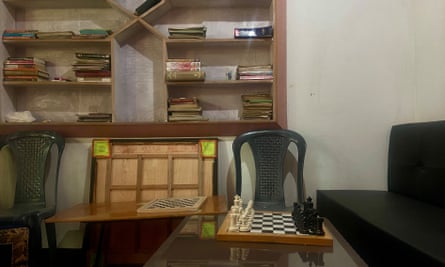No family came to visit Ali Mohammad Dar at the care home where he spent his final days. He was moved to the home in Budgam from hospital, where he was being treated for kidney failure.
When Dar died in March, staff at the home in Indian-administered Kashmir struggled to find a place to bury him because he didn’t have a family burial plot.
In Kashmiri society, elderly people usually live with their children. Beyond the immediate family, extended relations and strong kinship ties have offered a safety net to people as they age. Failing to support parents or relatives is seen as shameful.
But this year, the Kashmir authorities opened the first residential homes for old people in the region. Run by NGOs on behalf of the government, they are to meet a small but growing need that indicates a shift in attitudes.
Mohammad Shafiq Chak, director of social welfare in Kashmir, says the fact that the 10 homes only have a few residents – currently 45 – is “good news” and means the situation “isn’t alarming yet”.

But Sumaya Ramzan, superintendent at a home in Srinagar and a social worker, is concerned. “Individualism has crept up strongly over the last few years and traditional values that emphasises the welfare of the whole family as a unit, where elderly people would find a place of importance, are receding,” she says.
The idea of care homes remains problematic, however. “When we were looking for spaces to rent for the home, people would not let to us after they came to know the purpose. They would resent the idea of an old age home,” says Ramzan. “In one place, the father of the man who was going to rent us the building told him: ‘Today, you open this here, tomorrow you will admit me into it.’”
Mohammad Afaaq Sayeed, who runs the NGO Social Reforms Organisation, Kashmir, abandoned plans for a home after resistance from colleagues. “We got a lot of negative comments about it, people said don’t do this.”
Sayeed believes it will take years for full acceptance of care homes. But residents are not retired people who choose to live there for comfort. They are from the margins of society who have been abandoned by families.
Raja Muzaffar Bhat, an activist who arranged for Dar to stay in the Budgam home, says he was initially against their establishment, “but … for those people who have no one or who have been abandoned, it is very important that such places should exist. Dar’s case is relevant. If there wasn’t such a place, where would we have taken him?”

Abdul Majid*, 75, had been homeless for a month when he was taken to a residential care home by Hope, an NGO in Baghi Mehtab, Srinagar, about four months ago. He had left the family home after being abused by his sons. “My nose was broken, my clothes were torn, I was locked [indoors] during the day,” he says. No relatives or neighbours came to his aid.
He now lives with two other men in the home, which has five rooms, a kitchen, two washrooms and three staff. One resident recently left after being reunited with her family.
after newsletter promotion
The days consist of walks, television and playing carrom, a board game. They have found camaraderie.
“I had never thought I would end up like this,” says Majid. “When I came to the old age home, when they saw my condition, they kept me. I just want a place to stay.”
Bashir Ahmad* moved in after being made to feel a burden by his brothers and sister, who he had lived with since the death of his mother. He says he now feels content. “Here, you can freely converse and share your heart’s musings. There, you couldn’t.”
“The disintegration of the joint family structure makes the elderly population more vulnerable to issues of care, neglect, abuse,” says Dr Farah Qayoom, an assistant professor of sociology at Kashmir University.
“Since Kashmiri society is in transition, there are not many agencies to take care of this growing problem of elderly neglect and abuse. Senior citizen homes can help in solving this social problem.
“Elderly abuse is a stigmatised topic in our society. Many a time, the neglected parents shy away from narrating the stories of abuse and neglect by children, fearing their societal reputation.”
*Names have been changed
